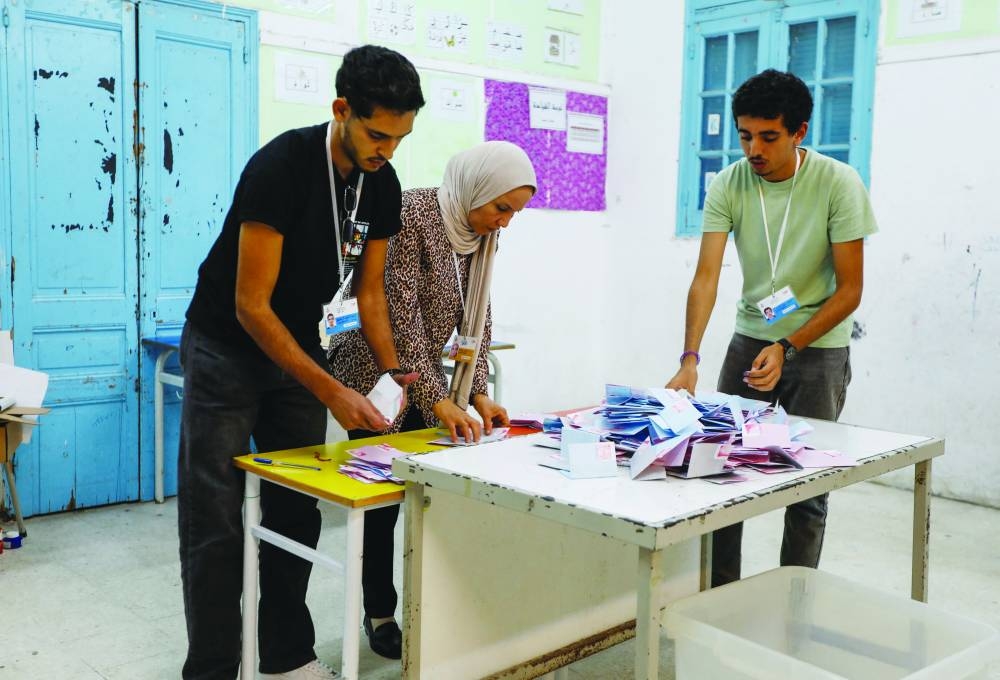Polls closed last night in Tunisia after voting in a presidential election expected to see incumbent Kais Saied secure another five years in office while his main critics — including one contender — are behind bars.
Three years after Saied staged a sweeping power grab, rights group fear re-election will only further entrench his rule in the country which became the only democracy to emerge from the Arab Spring uprisings. With the ouster of longtime dictator Zine El Abidine Ben Ali in 2011, Tunisia prided itself on being the birthplace of those regional revolts against authoritarianism.
But the north African country’s path changed dramatically soon after Saied’s democratic election in 2019. The power grab by Saied, 66, saw him rewrite the constitution and crack down on dissent.
In a speech on Thursday, Saied called for a “massive turnout to vote” and usher in what he called an era of “reconstruction”.
The Tunisian electoral board, ISIE, has said about 9.7mn people were eligible to vote, in a country whose population is around 12mn.
By 1:00pm – five hours before the 5,000 polling station closed – only 14 percent of voters had cast ballots, ISIE said. The board’s spokesman Mohamed Tlili Mansri later said it was expecting around 30% turnout. That is roughly the same proportion of people who turned out in 2022 for a widely boycotted referendum on the new constitution. “I came to support Kais Saied,” 69-year-old Nouri Masmoudi said in the morning. “My whole family is going to vote for him.” Hosni Abidi, 40, said he feared electoral fraud.
“I don’t want people to choose for me,” he said. “I want to check the box for my candidate myself.” Tunisia’s electoral board said ahead of the ballot that it would not allow two local independent watchdogs to monitor the vote.
By midday in Bab Jedid, a working-class neighbourhood, there were few voters, and most were elderly men. Saied cast his vote alongside his wife in the affluent Ennasr neighbourhood, north of Tunis, in the morning.

Election officials work at a polling station, during the presidential election in Tunis, yesterday.
